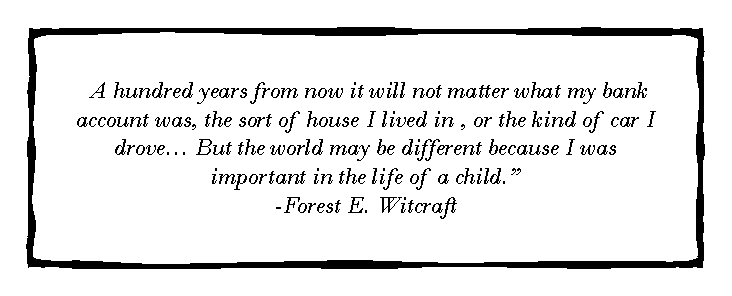Robin C. Miller
Consequences of Stress on Children's Development
I
am going to focus on five out of the eleven stressors that many children come
in contact with on a daily basis. Those five stressors are poverty, hunger,
noise, chaos, and violence. Working with children for a little over eight years
I have come across plenty of children who had to suffer through some of these
unfortunate circumstances. I work with low-income families and children so they
have seen their fair share of poverty and hunger. Many children in low-income
families do not have enough food or money to get by on. These families rely on
the assistance of the state to help them provide for their families. Sometimes,
that is still not enough. I believe that all child care centers and schools
should provide free meals to the children as well as offering assistance with
school supplies and uniforms. Many schools have set this kind of assistance
into place already but, there are still many schools that put a price on the
meals they serve or do not serve meals at all and the children have to bring
their own food. I think that any institution that is based on a child’s
education and well-being should assist their students and their families as
much as they can so the parents can gain that relationship and trust with the
school knowing that someone has there back and best interest at heart.
I had recently watched a documentary on Sean
Penn who is helping Haiti rebuild. Many people have a mindset of, “out site,
out of mind.” Well Haiti still needs help and Sean Penn has gone above and
beyond the line of duty to help. He has donated a little over 3 million dollars
of his own money to help the rebuilding process that included: medicine, school
supplies, food, shelter, and much much more. Watching the documentary he
pointed out how many of the families are still suffering severely. Haitian
homes are still destroyed and families are living in homemade camps. These
camps are filled with an overflowing amount of people where the men outnumber
the women. At night the women have to stay awake to make sure that men don’t sneak
into their tents to rape them. The sexual violence there is overwhelming and
more and more women are becoming pregnant and increasing the amount of population
and poverty. These make shift towns are suffering from poverty, hunger, noise,
chaos, and violence. Can you imagine what it is doing to the children and the
effects it has on them? I was so saddened by this story but, it is the everyday
life and the reality of the families that live in Haiti. Please keep them in
your prayers my fellow colleagues.

